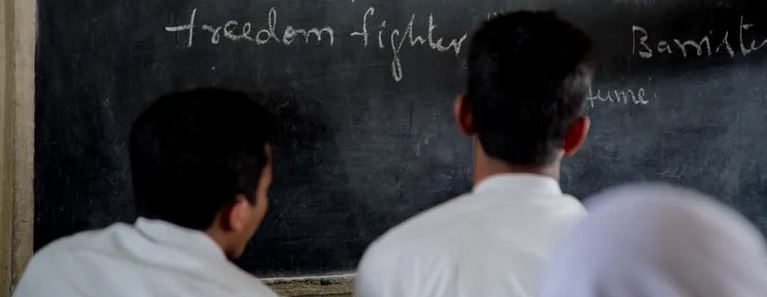By Andrew Denholm 20 January, 2018
A BACK to basics approach in school reading where primary pupils are allowed to chose their own books rather than follow a set syllabus is having a transformative affect on literacy, new research shows.
The project in Renfrewshire primary schools encourages reading for pleasure during break times in specially created “reading cafes” and library corners. Pupils are also encouraged to take books outside at lunch time.
Another key strategy is the practice of pupils reading aloud together rather than being streamed into ability groups.
And schools have also focused on attracting interest from parents so those with their own literacy issues can improve confidence and begin to read to their child at home.
An academic from Strathclyde University who has evaluated the scheme said it had led to an improvement in children’s literacy attainment – regardless of their background – over the past three years.
Data from reading tests since 2015 shows an increase in the average standardised age scores from P3 to P7 and a decrease in those with low and below average scores. The increase applied to both girls and boys.
Further analysis indicated that the teaching programme may have had the greatest positive impact on children living in the most deprived areas – although it shows a positive increase in pupil attainment at all stages.
The results come at a time when there is concern over falling literacy and numeracy standard following the introduction of a new school curriculum.
Professor Sue Ellis, from Strathclyde’s School of Education, said: “Whether children are rich or poor, they must be able to read to access the rest of the curriculum and this project has made a real difference to the children of Renfrewshire.
“The data clearly shows a fall in the number of children with below average and very below average scores, and an increase in those scoring above average and very high scores.”
The innovative Renfrewshire Literacy Approach, jointly funded by the council and the Scottish Government, was welcomed by John Swinney, the Education Secretary, during a visit to Our Lady of Peace Primary School in Linwood.
He said: “The report shows good progress in raising attainment in literacy and closing the poverty related attainment gap.
“Supported by funding through the Scottish Attainment Challenge, this collaborative work undertaken by Renfrewshire Council and Strathclyde University to improve literacy and close the attainment gap is showing promising results and we look forward to further progress as the programme develops.”
Jim Paterson, convener of Renfrewshire Council’s education board, said: “This report shows the positive impact the approach has had on literacy attainment. Real progress is being made with the literacy skills of pupils.
“The ability to read well from an early age means that children from all backgrounds will be able to take advantage of the opportunities open to them across education and will allow them to reach their full potential.
“We are committed to seeing attainment rise even further and to narrowing the gap between economically advantaged and disadvantaged children in Renfrewshire. This approach is instrumental in helping achieve this.”
Lesley-Anne Dick, headteacher of Our Lady of Peace, said the school had ‘fully embraced’ the approach and added: “Staff have worked extremely hard to completely change their practice and have said they enjoy teaching reading in this way.
“The children themselves have said they enjoy having the opportunity to read or be read to every day. Several who were reluctant, are now reading and are now exposed to a wider variety of real books rather than being limited to a school reading scheme.
“It is lovely to see them talking to each another about books, discussing their likes, dislikes and recommending authors.”
The partnership has seen more than 1,000 primary and secondary school teachers and other learning professionals take part. Standardised assessment data gathered from around 3,500 children from Primary 3 – Primary 7 demonstrated ‘statistically significant improvement’ in attainment of reading over the course of implementation.
Data also shows an increase in the number of children scoring above average and very high scores and a fall in those with low and below average scores.
The positive start to the Renfrewshire Literacy Approach is now being further developed through continued Attainment Challenge funding into other areas of literacy development.



